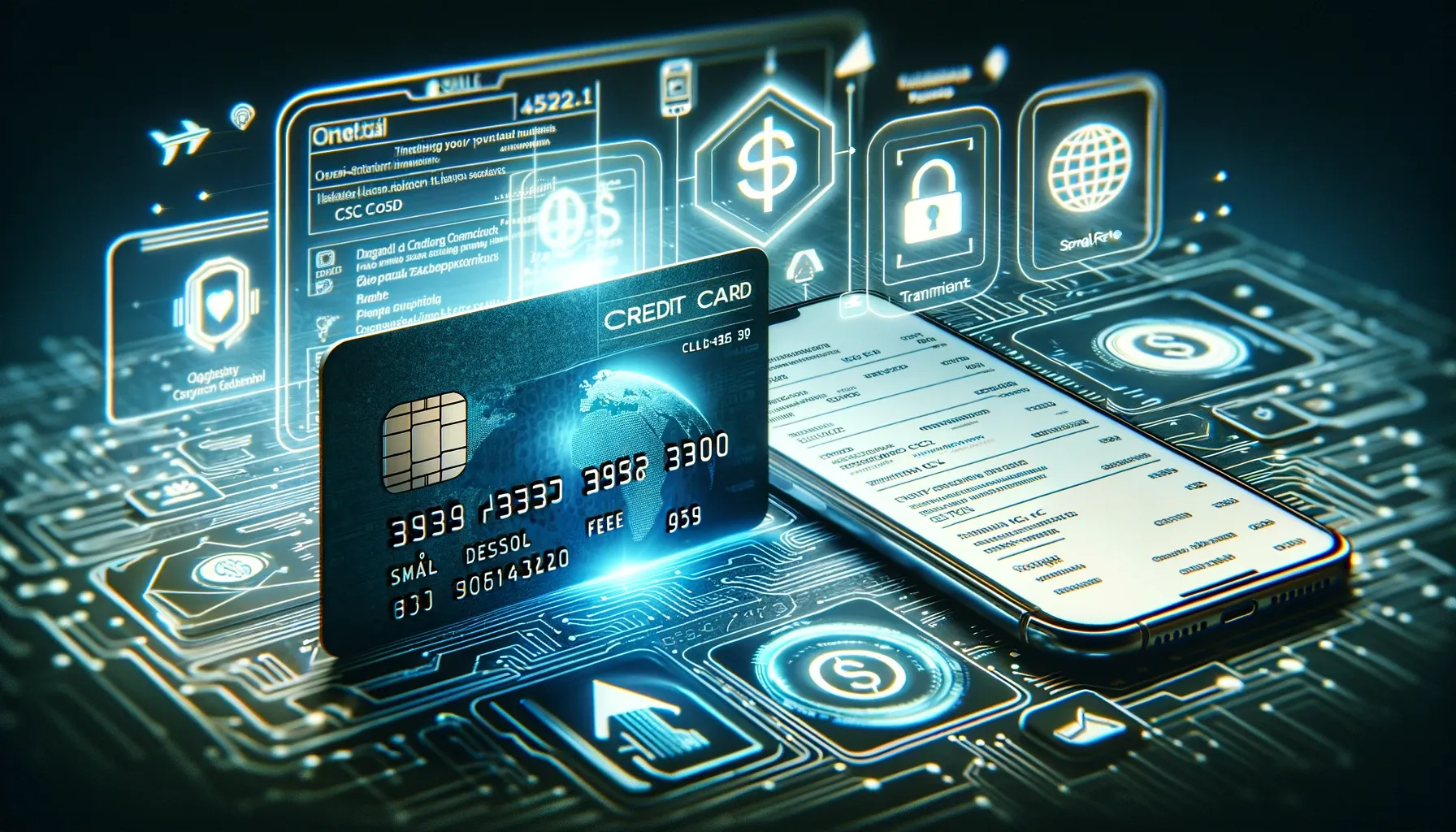Table of Contents
Ever noticed small CSC service fees on your credit card statement and wondered what they were? This article explains what common CSC charges from merchants are, why they appear, and when card security code verification results in these billing entries.
Have you ever noticed a strange CSC Service Work Charge on a Credit Card statement and wondered – what is this mysterious CSC charge? In this comprehensive guide, we’ll explain what these CSC billing codes mean and when they may appear on your statement.
What is CSC?
CSC stands for Card Security Code. It is a three or four-digit number that is printed on the back of payment cards like credit cards and debit cards.
The CSC code is used as an added security feature to verify the card is in the cardholder’s possession during transactions like online purchases or phone payments when the physical card can’t be swiped.
CSC is also sometimes referred to by other common names like CVV, CV2, CID, or CVC2. But in the end, these all refer to the 3 or 4-digit card security code.
Read also: Lillyflower2003

How much is CSC Service work Charges on Credit Card Statements
When a CSC or CVV code is processed as part of a transaction, it may show up on your statement as a “CSC Service Fee” or “CSC Charge.”
This simply indicates the merchant you purchased from collected and verified your card security code as an extra step to validate your card ownership.
So a CSC fee on your bill just means the transaction involved submitting the CVV/CID code and going through an additional security checkpoint.
Typical CSC Service Fee Amounts
CSC service fees on credit card statements are generally very small charges, ranging from $0.01 to $0.10 in most cases. The fee compensates the company for processing the code verification on behalf of the merchant.
On rare occasions, a higher CSC fee like $1 may appear. But modest CSC charges of a few pennies are standard.
Since the fees are so minimal, you may not even notice them mixed in with your other purchases. But keep an eye out for small CSC billing entries.
Why Do Merchants Collect CSC Codes?
Online and over-the-phone retailers will commonly ask for your card security code at checkout for a couple of reasons:
- It provides an extra layer of verification that you have the physical card in your possession.
- It helps validate that the card account belongs to you and hasn’t been stolen.
- It enables card-not-present transactions where the card can’t be swiped.
Submitting the CSC protects merchants from fraudulent purchases made with stolen account numbers. Processing the code also protects shoppers against unauthorized use of their cards.
When Will CSC Service Charges Appear?
The main types of transactions where you can expect to see CSC service fees on your statement include:
- Online purchases where you manually enter the code
- Over-the-phone orders where you provide the CSC to the operator
- Recurring billing like monthly subscriptions that require re-verification
- Digital wallet payments like Apple Pay if the provider collects CSC
- Transactions at self-checkout kiosks that prompt for the code
- Gas pump authorizations that request the CSC before filling
Anytime the card security code is collected during the payment process, a small corresponding CSC fee may get tacked on.
CSC Fee vs. Cash Advance Fee
One point of possible confusion is the difference between CSC charges and cash advance fees.
While they may look similar on your statement, a CSC fee is for card security code verification only. A cash advance fee is for withdrawing actual cash from your credit account, like at an ATM.
So small CSC service charges are nothing to worry about. Much larger cash advance fees should be avoided if possible due to high-interest rates.
Are CSC Service Fees Avoidable?
CSC verification charges are standard practice for many online and card-not-present merchants to protect against fraud.
But if you want to avoid the small service fees, here are some steps you can take:
- Use online merchants that don’t require CSC entry
- Shop only at stores where you can physically present your card
- Use a digital wallet like Apple Pay that encrypts card data
- Pay with cash more often to reduce card transactions
- Request to have CSC collection disabled on your card if possible
However, skipping CSC may increase the risks of unauthorized card use and denied payments.
CSC Fee vs. Skimming Fraud
A final note – small CSC service charges on your statement do NOT necessarily indicate your card data has been compromised or “skimmed” by hackers.
Legitimate CSC fees from verified transactions will show the merchant’s name. Scammers won’t have access to charge your account directly.
Monitor your statements carefully for truly fraudulent fees. However, authorized CSC verification charges from real merchants are not a cause for concern.
The Bottom Line on CSC Service Work Charges on Credit Card
In summary, the appearance of low-cost CSC Service Work Charges on Credit Card statements simply means the merchant collected your Card Security Code for added verification during a legitimate purchase.
This standard practice protects against fraudulent card use for both consumers and retailers. While you can take steps to avoid CSC charges, occasional fees under $0.10 are normal and not problematic.
So next time small CSC service charges show up on your bill, you can rest assured they are just a routine part of online and card-not-present transactions. With this knowledge, you can shop with confidence!

